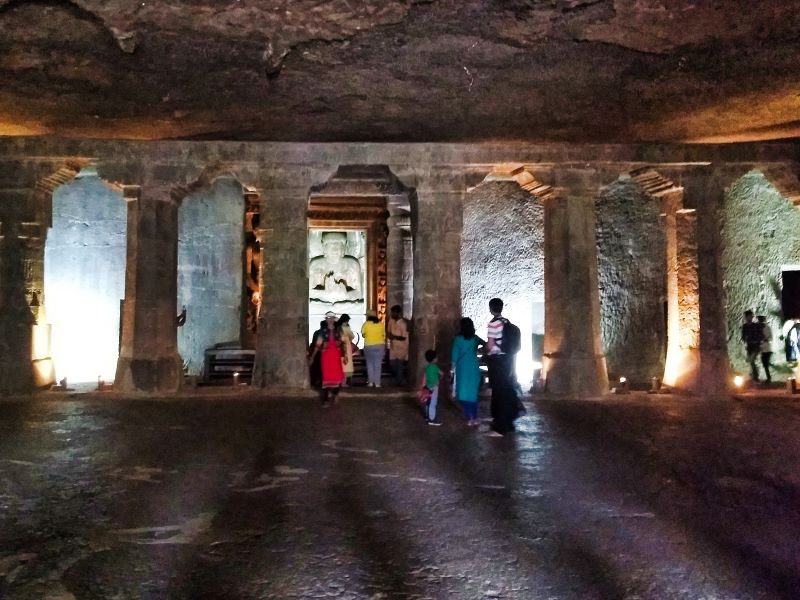
Ajanta Cave 2 features beautiful paintings and hand-carved sculptures. The paintings on the ceiling have geometrical and floral designs. Buddhist monks built the cave between 460 and 477 CE.
Construction of Ajanta Cave 2
Ajanta Caves are excavated from a mountain of basalt rock in a remote location. There are 30 caves in a horse-shoe shaped curve. Ajanta Cave 2 is the second one that you will come across.
The cave has a portico with painted walls and ceiling. Visitors have to take off their footwear prior to entry. Inside, a large hall leads to a shrine with a sculpture of a seated Buddha. The hall has 12 pillars and five cells on each side.
The walls have paintings of the Jataka tales. Floral and geometric designs adorn the ceiling. Ornamental pillars line the sides. The lighting is poor. Photography without flash is possible.
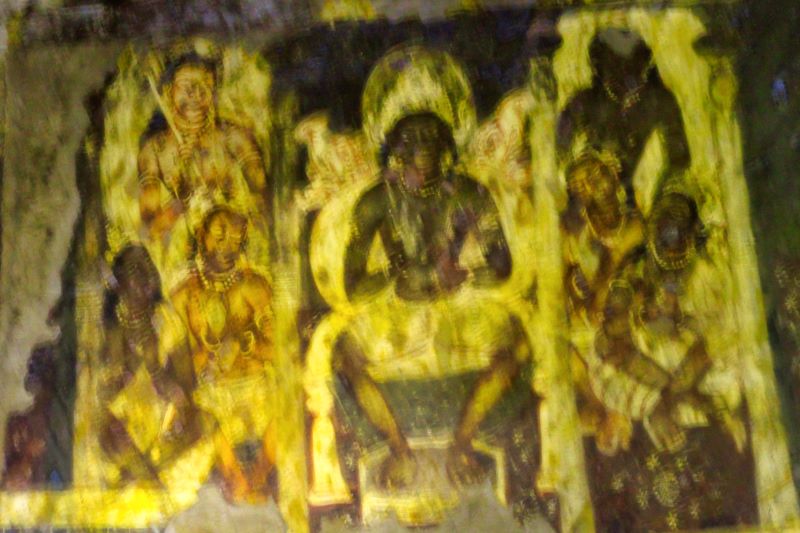
Painting of Bodhisattva and The Gods
The painting shows the Bodhisattva in heaven prior to his last re-birth as the Buddha. He was born to Queen Maya and King Shuddhodana of Kapilavastu. It was an ancient city in the eastern Gangetic plains. The Queen had a dream of a white elephant which was a omen of the birth of Buddha.
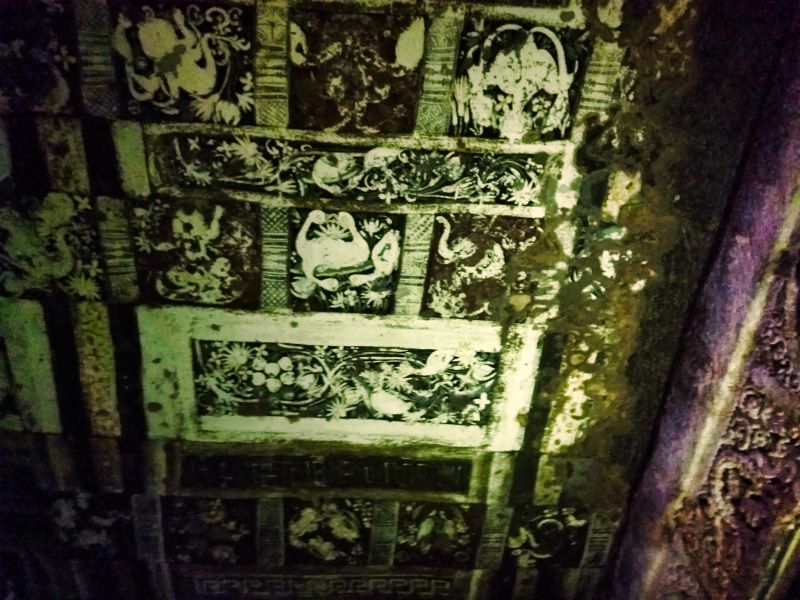
Ceiling Paintings in Ajanta Cave 2
The ceiling is remarkable for paintings containing geometrical shapes, playful dwarfs and varied floral designs. The painters had set aside the Jataka tales for the walls. The ceiling decorations include a number of figures of Persian appearance, evident from their beards and clothes.
The colours and shades in the paintings diverged from lamp black, red and yellow ochre, terre verte, lime, kaolin and gypsum. Lapis lazuli was the key ingredient in the creation of the intense blue colour. The chief binding material was glue. The paintings at Ajanta are not frescoes. They utilise a binding agent.
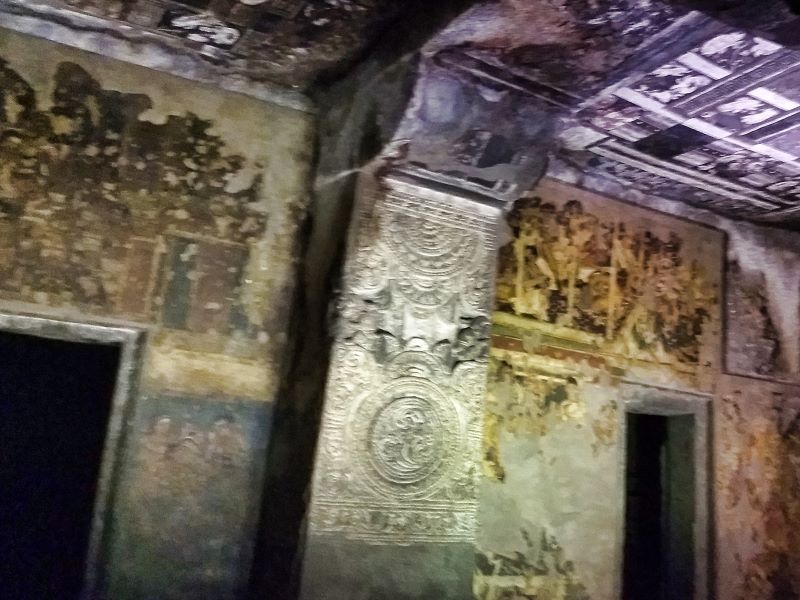
The paintings on the ceilings and walls of Cave 2 have received wide acclaim. The stories depicted in cave 2 show many noble and powerful women in prominent roles. This suggests that the patron was an unknown woman.
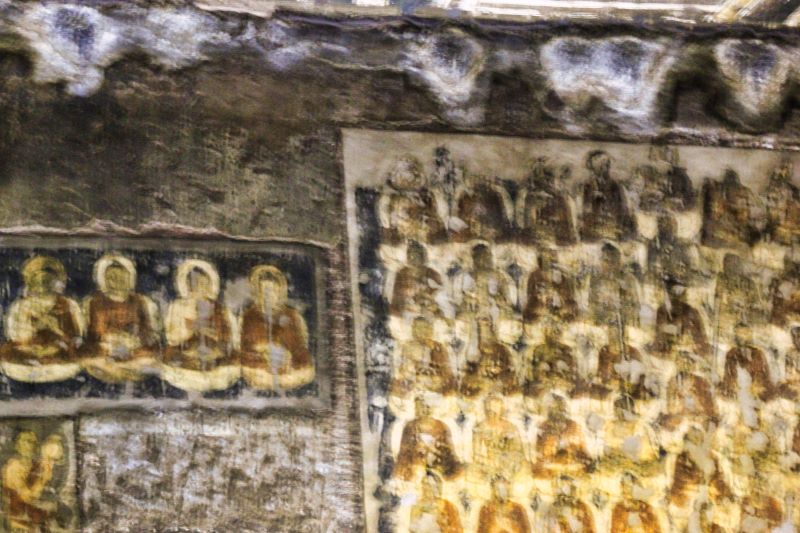
Thousand Buddhas
Inside, on the left hand wall is the mural depicting The Birth of The Buddha. Next to it is the Thousand Buddhas which illustrates the miracle when the Buddha multiplied himself to confuse a heretic. On the right are dancing girls before the king, shown in striking three-dimensional effect.
If you liked the post, you could…
Join more than 5,000 fans of UASATISH by liking us on Facebook, or follow us on Twitter and Instagram.
Related Post
